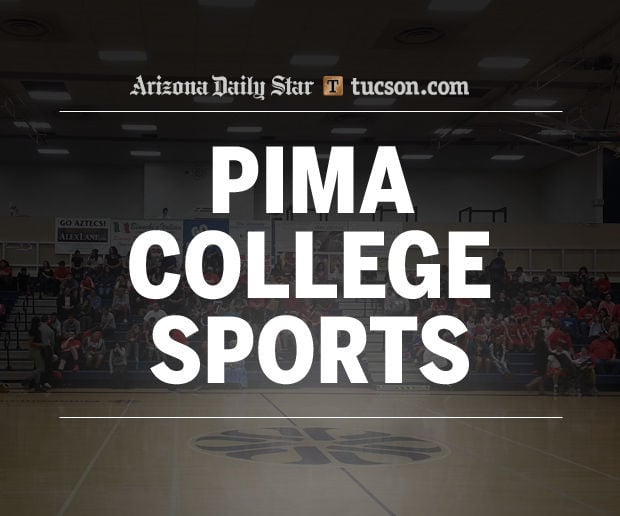Much has been written about Pima Community College’s fantastic year on the field, court, fairway, track — all of the above.
But athletic director Edgar Soto got a bit more satisfaction out of last week’s news that the Aztecs’ volleyball, women’s soccer and women’s golf teams all earned NJCAA Academic All-America honors.
Pima has had only one team earn the status in the past 11 years.
Eleven Aztecs athletes took home individual honors. Golfer Carley Nelson and track and field athlete Meghan Sweeney both finished with 4.0 GPAs, while football player Rozario Martinez finished with a 3.94 GPA.
The Star talked to Soto this week about Pima’s academic success.
Is there a different kind of satisfaction you derive out of this honor, rather than on-the-field success?
A: “We had three this year and one in the last 11 years, and we were very close to having a few more. … The criteria is so difficult, one grade here can make a difference, and I’ll tell you I’m more proud of that than all the other championships. Our lure to get them here may be the sports team, but our real goal is to get them hooked on higher education. You’ll have a few who might go on to play professionally, but the reality is very few are going to be pros. People see the wins and losses and we’re having a great year, but that’s a byproduct of us doing other things correctly. The college can exist without athletics, but athletics can’t exist without the college.”
How has the impact been felt?
A: “I’ll tell you, (men’s basketball coach Brian Peabody), he’s gotten really close to making it to nationals, and he was pretty upset about it this year; last year they lost by one point in overtime, and he’s been so close. I said, ‘You know Brian, there used to be a time at Pima a while back when academically our team would struggle so much that we’d have to have tryouts at the semester. We’d need to find new guys. The last two years, we’ve lost one guy academically. That’s it right there. That’s how I measure your success.’ It’s not just about winning and losing games, it’s about getting people ready for the real world. He’s relentless in making sure the kids are going to class. He does a lot of what I call ‘prehabilitation,’ putting in work in the front end so that we’re not trying to put out fires in the back end.”
How quickly do athletes realize what they have in store for them on campus?
A: “They have to realize once they step on campus, it’s a premier college. It really is. Your first two years of college, classes are the same wherever you go. The same kind of curriculum at Arizona, Arizona State — you’re taking those classes at Pima. It’s challenging work, and if a student comes in and they’re not up to speed where they need to be, Pima has the support and resources to get them there. Some student-athletes here have to take developmental classes. Pima is going to meet you where you’re at.
“I use this example: We had a softball player from Douglas, she was academically ready but she wanted to continue playing, ended up getting a four-year scholarship in North Carolina. You’ve got someone who has all the academics, and Pima was a place she could continue it.”
There was a time when junior college was looked at as a place for kids who couldn’t make it academically, but now with college costs on the rise, has it shifted toward people trying to save money?
A: “You get that premier kid who understands they’re there for academics first and athletics second. And you get the kids like I was, baseball was the thing for me, and academics were important, too. And you have some who just want to play ball and academics doesn’t mean much at all. Maurice Chavis, played at UTEP, he was a kid who wanted to major in eligibility. It took us a year for him to realize the importance of education, and because of it he played football at UTEP. We’re gonna get the best and the brightest, and a lot of kids are coming because of our success. We realize this: they’re coming to us at an age — 18, 19 years old — and they need that discipline and structure. It’s a vital time in their lives. This is the other part — we’re not just doing it with student-athletes. We have trainers, managers, video — it’s not just the players. There are other areas kids get involved in — journalism — and we’re trying to open up their eyes. The things we’re doing are not something just specific towards athletics. But in sports, we have the leverage — you don’t go to class, you don’t play.”
What is the support staff like at Pima and how does it help?
A: “I didn’t learn how to be a college student until I was put on academic probation (my) junior year, and I realized there was a way to go about academics through an athletic approach. I went to workshops — textbook reading, test-taking. It clicked for me. From there, I was on the honor roll every semester. Our athletes are getting workshops that our director of learning center, Penny Turrentine, put together, and they’re learning how to learn. They’re learning how to apply what they’ve used in athletics into their academics.”





